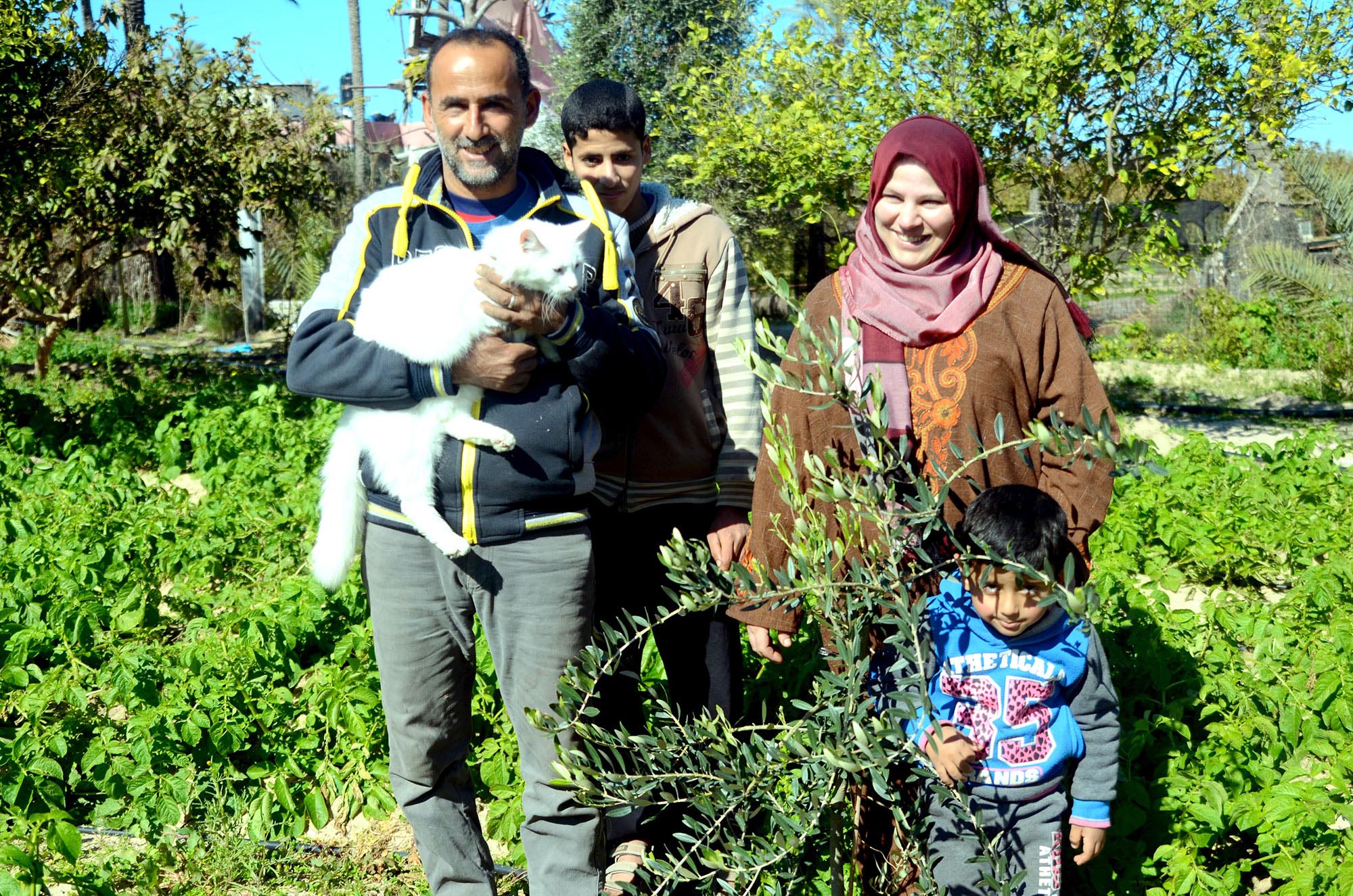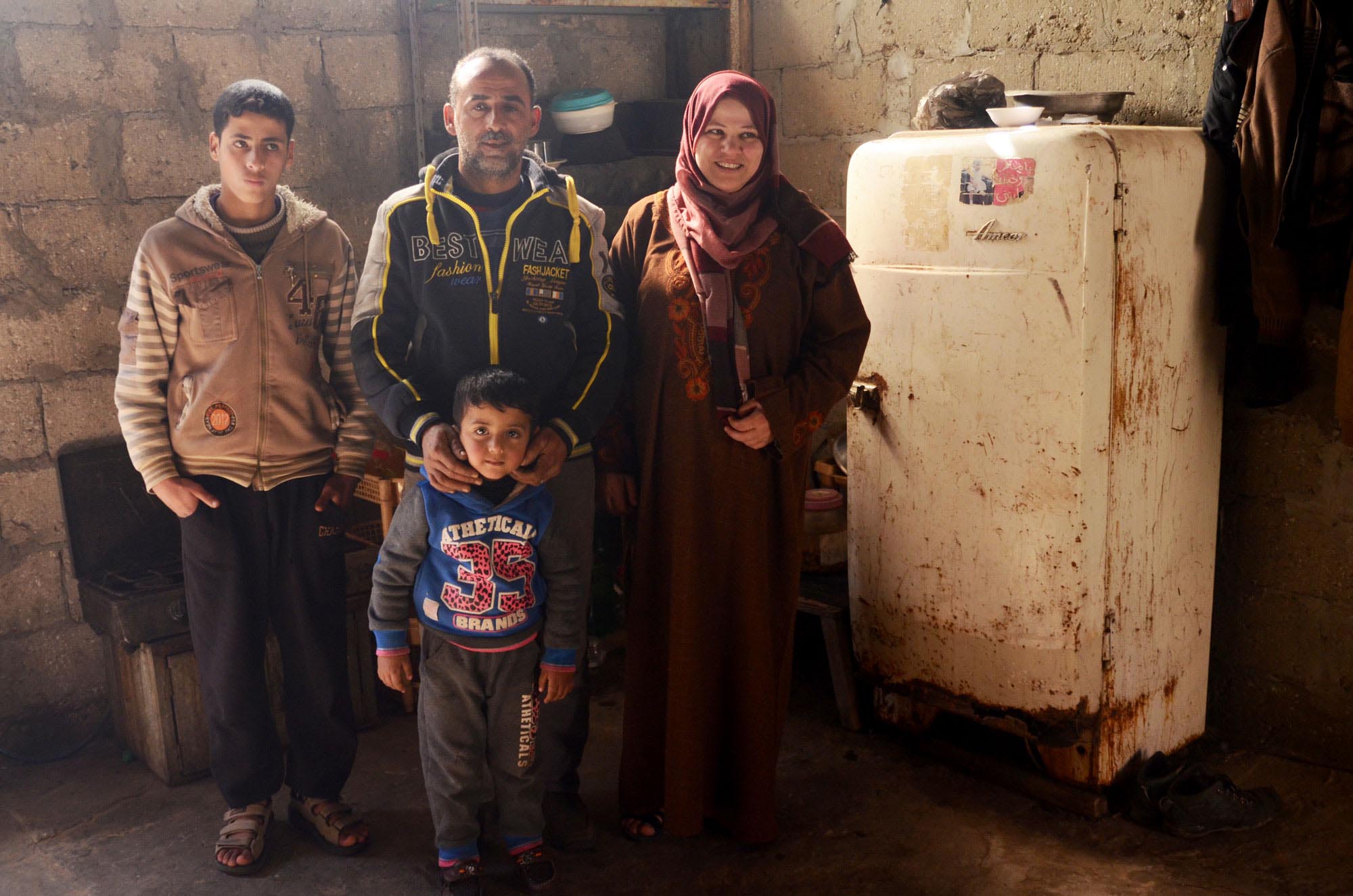Feb, 2016
“I used to have fields of olive trees but after my land was destroyed there was nothing left.”
Farmer Shaban Zoerob, a 45-year-old from the Khan Younis area, is a Gaza farmer whose small agricultural fields were damaged during the 2014 war. He is married with six children and a white cat named Misho.


“We had been exposed to heavy shooting from ships off the coast and it was all destroyed. Thankfully my family survived and so did our cat.”
Since Anera launched its Gaza agriculture restoration project in March 2015, more than 120 farmers have restored their lands. They’ve produced enough vegetables to meet their family needs, sell produce to the local market and donate anything they can spare to families whose homes were destroyed in the 2014 Gaza war.


Now, farmers are preparing for another bountiful season – this time including potatoes.
After joining the Gaza land restoration project, Shaban received compost, irrigation pipes and training on planting techniques and how to expand his production. Last October, he harvested a large quantity of green peppers, eggplants and onion. Shaban has decided this season he will also plant potatoes among other types of vegetables. With more than 15 years of farming experience, he knows it is the best seasonal crop and it is profitable.
“I decided to plant potatoes because they grow fast and produce a lot,” he explains. “We can store the potatoes in refrigerators so they can be sold to local groceries and restaurants even after the season.”
Shaban says one of the best things about the project is that Anera and local partners do everything possible to help farmers thrive.
When it’s harvest time, his whole family pitches in. “We sell the crops and we live on the money that we make. The most important thing for us is that we are not in debt,” Shaban says.
His wife, Amena, is also busy caring for their children, and when the electricity comes on for a few hours, she rushes to clean the house, wash clothes and prepare healthy meals for her family, cooking the fresh produce from the farm. Amena is grateful for the land’s blessings. She says it has helped her family survive and also pay for basic hygiene items and school supplies for the children.






